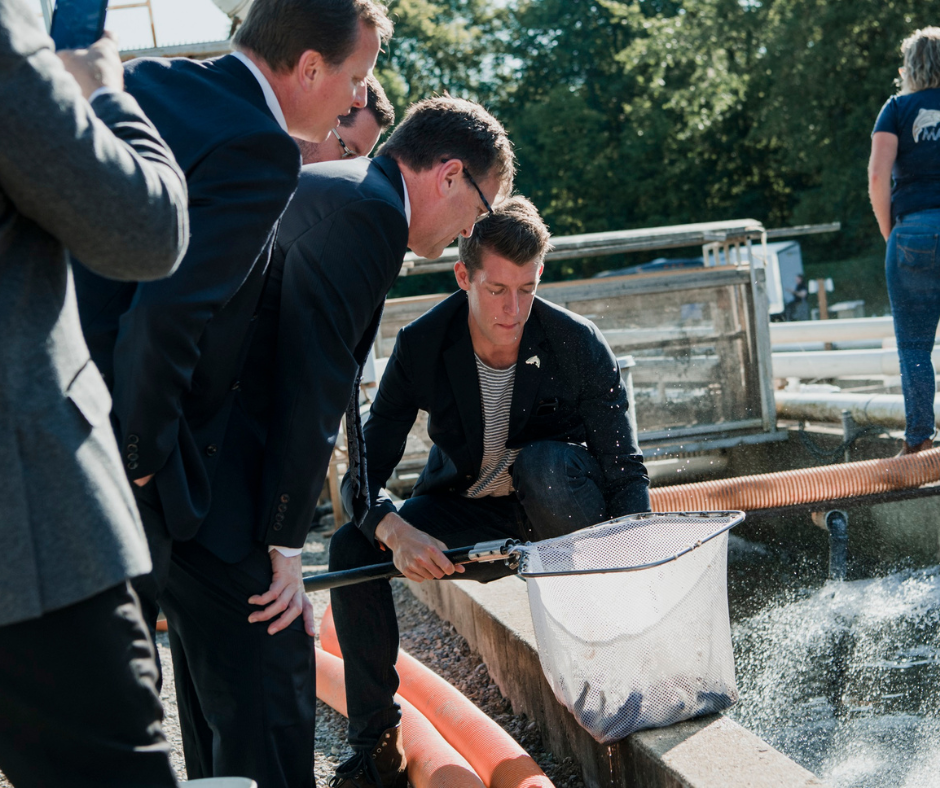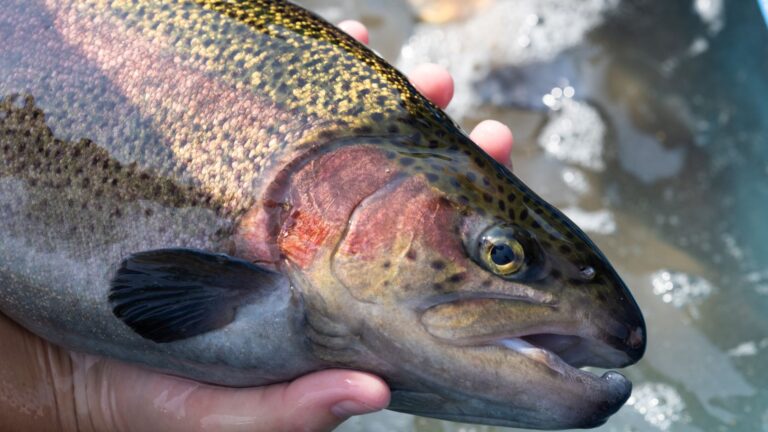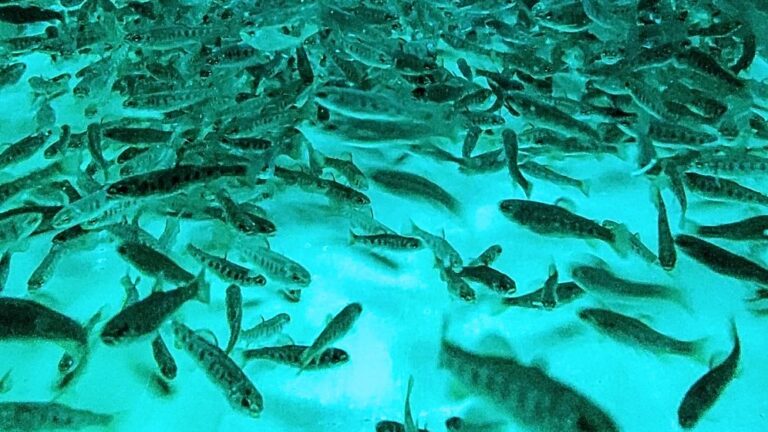
We speak to a lot of people about fish farming every day, and we occasionally meet some folks who think it’s bad. In our experience, it can be easy to change their mind with a careful conversation.
Here are our tips:
1. Start with acknowledging what they’ve heard might be true.
There are bad fish farms after all. Try asking “What have you heard?” Just listen, because if you immediately try to discredit them, chances are they won’t believe what you have to say.
2. Plant a seed that there are good fish farms out there.
This way you’re not telling them they’re wrong, just that there is more to know!
These are some of our favourite phrases:
- “I understand a few bad farms get all the media stories, but I know there are some great fish farms here in Ontario!”
- “The media and the TikTok’ers really focus on a few bad farms, but there are so many more good farms that don’t get any attention.”
Chances are they’ve heard a negative thing in passing — almost always it’s about salmon farming in BC — so you can also try saying “I don’t know what’s happening out there, but let me tell you the cool things about my local fish farm.”
If folks keep bringing up BC salmon farms, we suggest an answer such as “BC salmon farming is tough, and I’m not the best person to talk about it because it’s so different than what we do in Ontario. What I do know is that both sides of that debate think they have enough science to prove their points. Conflicting science is the same as no science, and so people default to their feelings instead. And the environmental NGOs are better storytellers.”
3. Give some comparisons to wild fish, but keep it friendly.
We find people can be critical of fish farming, yet never ask the same questions of wild fish. We’ve found introducing this doubt can help open their mind to learning more.
“Just like there are good and bad fish farms, there is also good wild fish that’s sustainable.. and then bad wild fish from polluted waters and slavery and all that.”
4. Avoid putting other farmers down.
It’s tempting to say things such as: “But fish farming produces less emissions than any other farm animal” or: “Fish are more efficient than chicken or beef at converting feed to meat” or our absolutely least favourite: “This fish farm is so much better than that other type of fish farm”.
But don’t. It only makes you look bad, and doesn’t contribute to your argument.
You’ll get farther when you share reasons that fish farms are good, not reasons others are bad.
5. Share your good experiences with farmed fish.
And all of us at Springhills gladly volunteer to be your example for sustainable, humane and tasty farmed fish!
- If they had mentioned farmed fish tasting bad, tell them about your last great Springhills meal.
- If they mention the environmental impact, mention that Ontario fish farms can boost wild fish populations around the farms. Or talk about the strict eco-certifications like Best Aquaculture Practices that we go through.
- And if they have never visited a farm, encourage them to stop by Springhills for a self-guided farm tour and see how it operates for themselves!
6. Be b-REEF and avoid leading with the science.
We find it more successful to get to the point. Sometimes it feels like we’re being more persuasive when we say more (and trust me, we’ve been there!) but it actually waters down and confuses our message.
For many years, we used to immediately start citing the many scientific studies linking our fish farms to positive environmental impacts. It resulted in too many glazed eyes though, so now we get farther sharing personal stories and anecdotes — like how our fisher friends at Sheshegwaning are seeing fish species they haven’t seen in 10 years returning to the bay after we opened the farm!
7. You don’t have to be the expert.
If your friends have more questions or criticisms, just send them to our website. We have plenty of educational articles about fish farming, such as fish farming myths, environmental impacts and what we feed them.
And don’t worry if they’re not convinced right away. It’s not about persuading them to join a pro-fish farm rally.. the most helpful thing is to simply introduce doubt that not every fish farm in bad!
Thank you for being a cheerleader for local fish!
(And if you do LURE them in to try Springhills fish, don’t forget we have a referral program where they get $10 off their first box and you get $5!)

